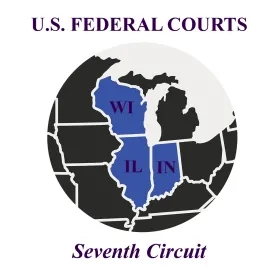Addressing the symmetrical fee-shifting provision of the Copyright Act and whether a prevailing defendant was entitled to fees even when the plaintiff moved to dismiss the case in response to a change in law, the US Court of Appeals for the Seventh Circuit reversed the district court’s denial of attorneys’ fees and remanded the case for reconsideration. Live Face on Web, LLC v. Cremation Society of Illinois, Inc., et al., Case No. 22-1641 (7th Cir. Aug. 11, 2023) (Scudder, Kirsch, Jackson-Akiwumi, JJ.)
The Cremation Society of Illinois and its co-defendants (collectively, CSI) licensed software from Live Face on Web. Live Face on Web then sued CSI for copyright infringement, seeking damages of more than 1,000 times the initial license fee. Five years later, while summary judgment was pending, Live Face on Web moved to dismiss the case, arguing that the Supreme Court’s 2021 decision in Google LLC v. Oracle America, Inc. “made the defendants’ fair-use defense insurmountable.” The district court granted the motion to dismiss, and CSI filed a motion to recover fees. The court denied the motion for fees, in part because “awarding fees would neither encourage nor discourage other defendants from maintaining valid defenses against copyright claims.” CSI appealed.
The Copyright Act allows prevailing parties to recover costs and fees. The Seventh Circuit examined the nonexclusive factors that guide this analysis:
The frivolousness of the lawsuit
The losing party’s motivation for bringing or defending the lawsuit
The objective unreasonableness of the losing party’s claims
The need to advance considerations of compensation and deterrence.
The Seventh Circuit noted that the last factor relates to the purpose of the fee-shifting provision: “[b]y encouraging parties to stand on their rights, the Act’s symmetrical fee-shifting provision advances its core purposes.” A successful copyright infringement litigant “encourages others to use the copyright system, fostering further innovation,” whereas a defendant “who successfully protects his rights to use things in the public domain necessarily gives others a license to do the same.” The Court stated that prevailing defendants in particular benefit from a strong presumption that they are entitled to recover attorneys’ fees: “Without an award of attorney’s fees, a defendant faces pressure to abandon his meritorious defenses and throw in the towel because the cost of vindicating his rights (his attorney’s fees) will exceed the private benefit he receives from succeeding (a nonexcludable right to continue doing what he was already doing).”
In this case, the district court reasoned that CSI’s success was due to the change in the law rather than meritorious defenses and, therefore, awarding fees to CSI would not advance or deter any conduct. The Seventh Circuit disagreed, stressing that Live Face on Web did not demonstrate that it would have prevailed but for the Supreme Court’s decision in Google. Moreover, the Court noted that CSI had raised multiple other defenses that were not impacted by Google. In any event, the Court reasoned, “[i]n litigation, both sides accept that as the case evolves, the law might, too.”
The Seventh Circuit disagreed with the district court’s assessment of the four factors, noting that the second factor (the losing party’s motivation) may weigh in favor of CSI since the facts suggested that Live Face on Web was a copyright troll seeking to extract nuisance settlements. This would tip the second factor in favor of CSI because in defending the case, it was acting as “a private attorney general, combating a disreputable business practice—a form of extortion.” The Seventh Circuit also noted that when assessing the fourth factor (the need to advance considerations of compensation and deterrence), the district court should consider the effects of not awarding fees in addition to the deterrent effects of awarding fees.
The Seventh Circuit remanded the case for further consideration by the district court “with the benefit of [this Court’s] views” on the “very strong presumption in favor of awarding a prevailing copyright defendant his fees and costs.”




 />i
/>i

